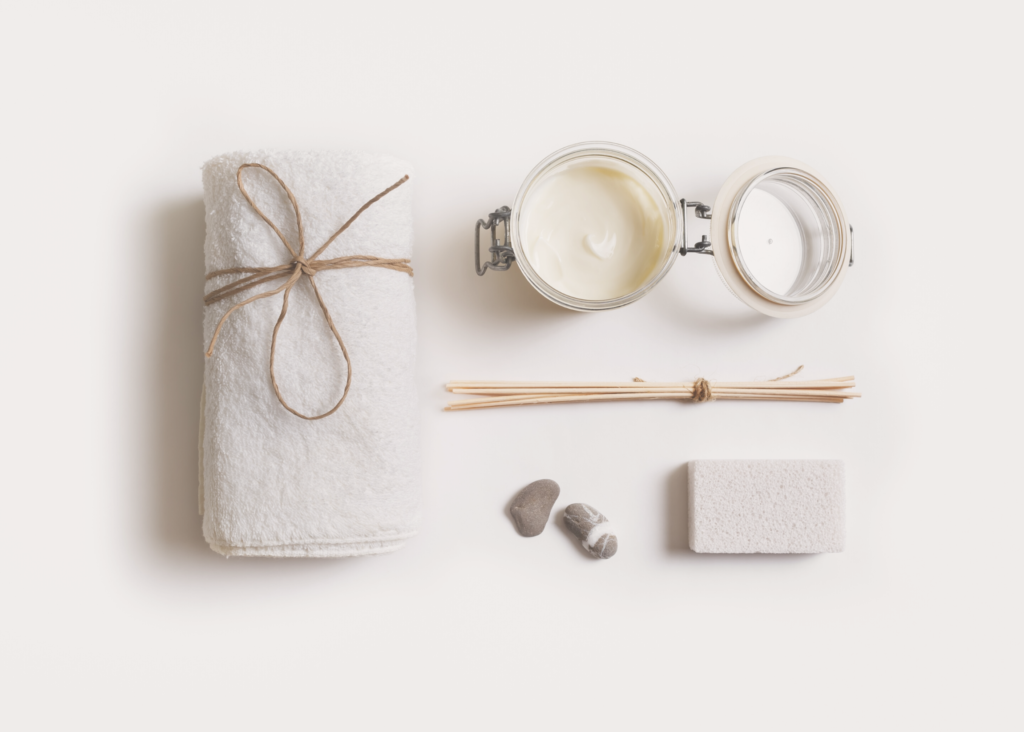Why I Choose Process Goals over Outcome Goals

I started writing this post months ago, right around the new year and never published it. I wrote about how during this time of year (the new year), we often reevaluate our goals and create new ones. We choose outcome goals and then work on them (sometimes). I decided to revisit this post now, because our lives have changed dramatically, and for some of us, the way to our outcome goal is no longer viable (“travel more” is one that comes to mind). Now, more than ever, I choose process goals over outcome goals.
I think both outcome goals and process goals are important, of course. We need big outcome goals to motivate us to work on our process goals. But now, more than ever, certain outcomes are very uncertain.
How can we finish a marathon (outcome goal) if we don’t even know if the marathon will even happen this year? We can’t. But we definitely can continue running each day (process goal).
In times of uncertainty, we can ask ourselves to continuously improve, even if it is with tiny things, like drinking more water. Or big ones, like being more patient with our children. This is why I choose process goals over outcome goals.
Process goals give me something to work on each and every day. No matter what.
What is An Outcome Goal?
All of our goals are meaningful. They are important to us (or at least important in the moment). But sometimes, we are on the wrong track. We choose lofty goals (great!) but don’t determine a way to get there. We say, “I’d like to achieve X by the end of the year” without a means of the end. We give ourselves an outcome.
An outcome goal is a singular achievement that you are working towards. They are often an either/or. As in you either achieve it or you don’t. Things like “I want to lose those last ten pounds of baby weight,” or “I will be the number one salesperson in my region,” or “I will get a promotion,” or “I will win a medal at this summer’s triathlon.”
What Is A Process Goal?
A process goal is a goal to do something consistently, usually each day. Rather than having an end goal (like lose ten pounds), process goals are the steps to get there (drink a smoothie every morning for breakfast, do yoga before work every day). There is no deadline, just a desire for constant improvement and progress. Although, they can be used to support an outcome goal (as in, I will run 5 miles every day, in order to lose ten pounds or win a medal at this summer’s triathlon.”
Why Process Goals?
I prefer process goals over outcome goals. I think it gives us a way to make progress towards our big achievements, over time, with a measured, consistent way to get there. We will eventually achieve the outcome (lose the weight) or determine we don’t necessarily want to (we may find that we look/feel better a few pounds heavier but much fitter).
Process Goals Give Direction
A Process goal will help you focus on what is important and help take the next step. Not sure what to do today? Start with your process goals.
If you wake up in the morning and think about making your blog profitable (outcome goal), you may not know what the next best step is. A process goal to write every day is a helpful step. When you are paralyzed with indecision on what steps to take to make progress, process goals help get you there.
Process goals help us determine strategies and practices to achieve our outcome goals.
Process Goals Help Prevent Regression
Process goals help when we backslide. Have a long weekend full of cake, wine, and way too many French fries? Well, keep on doing yoga every morning. You aren’t backtracking if you keep making progress, each and every day.
Process goals are completely under your control (this is my favorite part!).
Often outcome goals rely on external forces. Winning the race depends on the performance of the other racers, running everyday is under your control entirely. Being the number one salesperson in your region requires that you out-perform your colleagues. Hitting a certain number has to do with only you. Making 10 calls by noon is completely under your own control.
Process Goals Can Be Softer
Process goals can be softer. Things like, be more present and patient (two of my big goals for 2020) need to be process goals. Because presence cannot be measured, it can only be worked on. How? By setting up a process. Instead of “I will be more present” (an immeasurable outcome goal), I choose “I will meditate every day to help become more present” (a measurable, achievable process goal).
Process goals build on progress.
The last (and most important reason) I prefer process goals over outcome goals is that you never finish the process.
With process goals, you are always improving. If you meet the outcome goal, you can continue progressing. If you win the gold in your local triathlon, the process goal of running each day can get you to the next race, a longer race, or general good health (the ultimate goal!).
What are your process goals? Are they giving you something to work for in uncertain times? Mine are. I have started my daily yoga practice (again!), continued my daily meditation practice, and spend a few minutes a day organizing a small area of our home (think “bedroom dresser top” rather than “bedroom dresser”).
All of these process goals are keeping me on track to make continuous progress this year, the year that the world has essentially paused. Have I taken breaks? Yes, absolutely. Have I faltered on my process goals? More than I care to admit. But, they are keeping me on track. And they are keeping me centered, at least a little bit.
And, when I am overwhelmed and don’t know what the next step is, I look at my process goals and find something to do. These microprojects are keeping me on track to bigger things, keeping me from feeling overwhelmed, and keeping me just a tiny bit sane.




